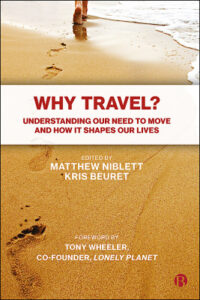“Engage Cuba” group launched in US to lobby for the lifting of travel and trade restrictions

Some typical modes of travel on the streets of Trinidad, Cuba. Many in the US, including some businesses, are calling for the lifting of travel and trade restrictions between the US and Cuba. Image credit: Views from the Street in Cuba, Bud Ellison licensed by Creative Commons via flickr.
19th June 2015
A coalition of US businesses, trade associations and policy groups have formed the “Engage Cuba” organisation to campaign for the lifting of US restrictions on travel and trade between the two nations. Members and affiliates of the group include the American Society of Travel Agents (ASTA) and Choice Hotels, one of the world’s largest hotel franchisors. Adverts aired on major US television networks to mark the day of the group’s official launch, promoting the campaign to the public as well as lobbying policy makers. This high profile move follows recent development in Congress, where the Republican-majority house blocked plans to lift the travel restrictions, frustrating the Obama administration’s attempts to improve relations with Cuba.
Whilst the interests of many “Engage Cuba” members are focused on the economic benefits of opening up travel and trade with Cuba, [1] much of the rhetoric employed centres on the issue of freedom. Zane Kerby, president and CEO of ASTA has said “ASTA has long believed that Americans ought to be allowed to travel across the globe without restriction, allowing them to act as ambassadors of freedom and American values abroad, and our work with Engage Cuba will bring that goal within reach.”
The idea of the freedom to travel is a powerful one, and the right to freedom of movement is enshrined within article 13 of the Universal Declaration of Human Rights. But freedom of movement is not an absolute right, and is often lawfully constrained and restricted. The control of travel – whether restricting travel or forcing it upon people – has long been a tool of social control by those in power. Many believe that God exiled the very first humans in punishment for their transgressions, and certainly the use of confinement (enforced restriction) or exile (enforced travel) have been methods of punishment for social deviants for millennia. The freedom to move was considered by many ancient Greeks as one of the four liberties that distinguished freedom from slavery; and this has formed a key feature of human slavery over the centuries with many millions of people either bound to certain lands or forced to travel as a part of their enslavement or serfdom. With the rise of the nation-state, taxation and wage labour in early-modern Europe, travel came increasingly under the purview of state governments who wished to control the movements of their people across their borders.
But it is not only governments that use the restriction of travel as a form of social control. Culturally, the freedom to travel is granted to some groups more than others. In some cultures women may be less able to travel freely due to explicit restrictions on the time, place and way they can travel and who with, for example the ban on women driving in Saudi Arabia. More subtly, cultural expectations and safety concerns may place limits on the freedom to travel. The international Reclaim (or Take Back) the Night protest group, among others, argue that fear of sexual violence often limits women’s perceived freedoms and rights to travel freely and unaccompanied. Different cultures have a variety of expectations for children, with some viewing unaccompanied travel as normal and unremarkable, while other cultures see it as dangerous or neglectful. A lack of accessibility to transport options for the elderly and disabled is another way in which some groups find their travel restricted.
That we view travel as such a basic freedom, and that it has for so long been used as a means of control by those with power, indicates the fundamental role that travel plays within human societies. But it also shows that why we travel is very often shaped by the constraints that act upon our choices: constraints which may be imposed by political, economic, or socio-cultural structures as well as physical and technical ones. Some of us are freer than others to act on our desires and needs to travel (or to stay put). But equally, since many of our travel behaviours are shaped by our circumstances, altering these circumstances may have profound effects on people’s travel behaviours.
These issues are a central concern to the Independent Transport Commission’s Why Travel? Project, which aims to understand better our motivations for travel from a broad range of perspectives. The project looks at both ‘internal’ psychological and biological drivers as well as the economic, cultural and social structures we have created that all enable, control and shape our travel behaviour. Ultimately, this deeper understanding will help us to make better decisions in future regarding human travel and transport, and the myriad areas of life which travel touches on. For more information on the project, including news and expert views, see www.whytravel.org.
[1] Members include the American Society of Travel Agents, the National Foreign Trade Council, National Association of Manufacturers, the Consumer Electronics Association, the Council of the Americas, plus private sector companies Choice Hotels and Proctor & Gamble, as well as the Center for Democracy in the Americas and Cuba Study Group.


